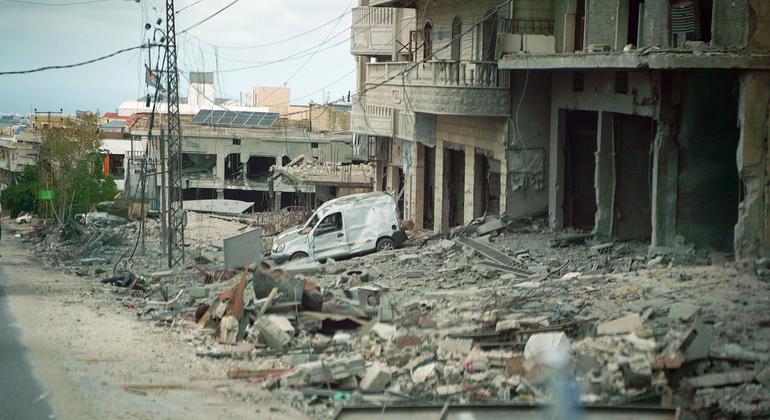After months of conflict and displacement, the ceasefire in Lebanon has brought hope and the possibility for thousands of residents to return to their homes. The United Nations refugee agency, UNHCR, reported that residents of south Lebanon, the southern suburbs of Beirut, and the Bekaa Valley began their return immediately after the ceasefire came into force at 4 am. Heavy traffic was observed on the highway from Beirut to the south as people made their way back to their homes.
The conflict that escalated into full-blown war in September had devastating consequences, with thousands of civilians killed and over 886,000 people uprooted from their homes, according to the UN migration agency, IOM. The low-level exchanges of fire across the UN-patrolled Blue Line separating Hezbollah militants in Lebanon from Israel had intensified, leading to widespread destruction and displacement.
As the ceasefire took effect, aid organizations mobilized to provide assistance to those in need. UNHCR reported that 11 trucks delivered emergency supplies to 3,100 people in the city of Baalbek, including blankets, mattresses, winter jackets, plastic sheets, solar lamps, and sleeping mats. The agency emphasized the importance of working closely with local authorities and partners to provide essential assistance to those affected by the conflict.
UNICEF Executive Director Catherine Russell echoed the Secretary-General’s support for the ceasefire deal and highlighted the turmoil and loss experienced by non-combatants in Lebanon. She emphasized the need for urgent efforts to ensure the sustainability of peace and the safe return of children and families to their communities. Ms. Russell stressed the importance of safe and unimpeded access for humanitarian organizations to deliver lifesaving aid to those in need, particularly in the south of Lebanon where the needs are acute.
UN World Health Organization Director-General Tedros Adhanom Ghebreyesus also welcomed the ceasefire and called for its immediate implementation. He noted the destructive impact of the war on Lebanon’s health system, with many children out of school and lacking access to healthcare and basic services. The ceasefire presented an opportunity to prioritize the safety and well-being of children and families, and all parties were urged to uphold their commitments and work towards sustaining peace for a brighter future.
As the ceasefire brought hope to Lebanon, the situation in North Gaza continued to deteriorate, with the siege passing 50 days. The ongoing conflicts and humanitarian crises in the region underscored the urgent need for peace and stability to ensure the well-being of all those affected by the violence.
In the aftermath of the ceasefire, the focus shifted towards rebuilding lives, providing essential assistance, and working towards sustainable peace in Lebanon and the surrounding regions. The international community, aid organizations, and local authorities must continue to collaborate and support those affected by the conflict to ensure a better future for all.









